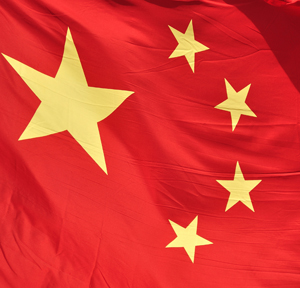Investment Strategies
China GDP Growth To Cool In 2012, Dragged By Eurozone - Invesco Commentary

China’s overall growth rate is likely to be slower in 2012 than in the previous two years, at 8.7 per cent, as the world’s second-biggest economy will not be able to avoid the dampening impact of the eurozone’s debt crisis, the chief economist at Invesco predicts.
The Chinese economy remains “excessively dependent” on external demand and is vulnerable to a deepening downturn in Europe, according to John Greenwood. “Thus even though domestic monetary and fiscal stimulus will almost certainly be employed in 2012, China’s overall growth rate seems likely to be lower in 2010 or 2011,” he said.
China's economy has acted as a prime driver of global growth over the past few years even as traditional powerhouses, such as the US, have stalled in the wake of the subprime mortgage crisis. But movements by Chinese authorities to curb sectors such as the hot property market have taken some fizz out of the economy in recent months. More recently, the Chinese banking authorities have loosened bank reserve requirements to boost growth.
The two main drivers of the China slowdown in 2011 were weaker domestic demand in the wake of monetary tightening and slower export growth to the West, Greenwood said. However, he does not expect a hard landing for the China economy.
Greenwood predicts the eurozone will expand by a paltry 0.3 per cent next year (market consensus -0.1 per cent), while the US will rise by 2.1 per cent (2.0 per cent); the UK will rise by 1.0 per cent (0.7 per cent) and Japan will expand by 2.0 per cent (2.4 per cent).
As for the US, Greenwood noted an improvement in some indicators since a “soft patch” was hit in the summer months. For example, real GDP in the third quarter recovered to 2.0 per cent on an annualised basis compared with 0.4 per cent and 1.3 per cent in the first and second quarters of 2011. Other measures, such as durable goods, have shown an improvement. “These are all signs that the economic recovery, although not vigorous, is at least on a consistently positive trajectory,” Greenwood said.
On a cautionary note, however, Greenwood said that the US has been able to avoid its debt becoming a drag on performance to the same extent as that of the eurozone because the dollar – so far – enjoys status as a reserve currency. “The risk for the US is that high levels of indebtedness will make the economy more vulnerable to balance sheet recessions. That is why it is so important to reduce the `global imbalances’ before another credit bubble begins,” Greenwood said.